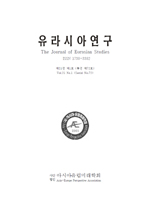- 영문명
- A Critical Review of the ‘Beijing Consensus’: Focusing on Ramo’s and Arrighi’s Arguments
- 발행기관
- 아시아.유럽미래학회
- 저자명
- 윤상우(Sang-Woo Yoon)
- 간행물 정보
- 『유라시아연구』제11권 제4호, 167~187쪽, 전체 21쪽
- 주제분류
- 사회과학 > 사회과학일반
- 파일형태
- 발행일자
- 2014.12.30
5,320원
구매일시로부터 72시간 이내에 다운로드 가능합니다.
이 학술논문 정보는 (주)교보문고와 각 발행기관 사이에 저작물 이용 계약이 체결된 것으로, 교보문고를 통해 제공되고 있습니다.

국문 초록
개혁개방 이후 중국의 고도성장은 수많은 발전론적 쟁점들을 양산해왔으며, 최근에는 ‘베이징 컨센서스’의 개념으로 호명됨으로써 신자유주의적인 워싱턴 컨센서스를 대체하는 대안적인 발전모델로까지 격상되고 있다. 그러나 베이징 컨센서스의 담론적 주장은 중국의 현실을 오도・왜곡하고 있으며 나아가 제3세계에게 잘못된 대안모델을 제시하고 있다는 인상을 지우기 어렵다. 본 연구는 이러한 문제의식에 기반하여 베이징 컨센서스 담론을 대표하는 라모(Ramo, 2004)와 아리기(Arrighi, 2007)의 주장을 중심으로 이들 논의의 문제점을 비판적으로 검토하고, 중국 발전모델의 실체를 재구성・재개념화하고자 하였다.
라모의 베이징 컨센서스론은 그가 제시한 혁신, 형평성, 자결의 원칙이 경험적으로 중국의 실제 현실에 부합되지 않는다는 비판이 제기되어왔으며, 이외에도 개념규정의 엄밀성 결여, 과학성을 빙자한 자의적 설명의 한계점을 갖는 것으로 평가되었다. 또한 아리기의 세계체제적 베이징 컨센서스론은 중국의 경제부흥이 과거의 역사적 유산인 비자본주의적 시장경제, 근면혁명(industrious revolution), 스미스적 발전경로 등의 전통과 연관되어 있다고 주장하는데, 그의 설명 역시 시장경제 및 자본주의 개념의 모호성, 중국에 대한 긍정일변도의 역오리엔탈리즘적 인식, 세계 헤게모니 이행에 대한 자의적 설명 등으로 한계를 지닌 것으로 분석되었다.
본 연구는 베이징 컨센서스론에 대한 비판적 분석을 토대로 중국 발전모델에 대한 핵심 쟁점을 중국모델의 기본 성격, 중국모델의 보편성과 특수성, 중국모델의 지속가능성을 중심으로 검토하였다. 중국모델의 기본 성격과 관련해서는 신자유주의적 시장원리를 발전국가적・케인즈주의적 국가개입을 통해 관리・통제하는 혼합자본주의로 규정하였고, 중국모델은 대만기업 및 화교자본의 초기투자, 국제분업구조상의 모든 가치사슬 진입이라는 측면에서 보편성 보다는 특수성을 강하게 지니는 것으로 분석되었다. 그리고 중국경제의 지속가능성 여부는 현재 중국이 직면하고 있는 축적의 불균형문제를 어떻게 해결하는가에 달려있다고 판단된다.
영문 초록
Since 1978 China’s economic miracle has produced various developmental issues, and it was recently conceptualized as the ‘Beijing Consensus’ which would replace the Washington Consensus and suggest an alternative development option for the developing countries. However, it is argued that the discourse on the Beijing Consensus might misinterpret and distort the realities of China’s development experiences, and also misguide false alternative model to the Third world. This study attempts to review critically the discourse on the Beijing Consensus focusing on Ramo(2004)’s and Arrighi(2007)’s arguments, and to re-identify the natures and features of China’s development model.
Ramo’s thesis has definitely so many limitations to explain the China’s experience, due to inadequate conceptualization of core factors enabling the Chinese miracle and to ad hoc interpretations disguising itself as scientific axioms just like quantum physics. And, Arrighi has argued that China’s renaissance in the reform era was associated with its historical traditions such as industrious revolution and Smithian natural path of development. However, Arrighi’s argument also did not make sense, because of false recognition on market-economy and capitalism, ‘orientalism in reverse’ toward China’s renaissance, and ad hoc explanations on transitions of world hegemony.
Alternatively, this study identify China’s development model as mixed capitalism including coexistence of neoliberal market and developmental-keynesian interventionism. Also, we can find out that the chinese model have exceptional characteristics rather than universal properties, and have problems of its sustainability concerning about unbalance of accumulation.
목차
Ⅰ. 문제제기
Ⅱ. 라모의 ‘베이징 컨센서스’론
Ⅲ. 아리기의 세계체제적 베이징 컨센서스론
Ⅳ. 베이징 컨센서스론의 극복과 중국 발전모델의 이해
Ⅴ. 맺음말
참고문헌
키워드
해당간행물 수록 논문
- 서남해안 해상풍력단지 활성화를 위한 한중 협력방안 연구 - 새만금을 중심으로
- 상하이 협력기구의 평가와 전망
- 대북 지원의 원조효과성 제고를 위한 다자간 신탁기금 설립 방안과 과제
- 중국기업에서 일터학습이 조직몰입과 경력만족에 미치는 영향
- 한국과 독일 주식시장에서의 변동성 전이
- 유럽연합 기업의 사회적 책임을 위한 거버넌스가 한국기업의 사회공헌활동에 갖는 의미 탐색
- 몽골 민주화 이행과정의 분석
- 우크라이나 민족주의 집단의 정치적 위상에 대한 연구
- 비대칭 동맹에서 방기 우려에 대한 대책: 한미 동맹의 사례
- 베이징 컨센서스 비판: 라모와 아리기의 논의를 중심으로
참고문헌
관련논문
사회과학 > 사회과학일반분야 BEST
- AI와 디지털 문화 산업의 결합에서 저작권 및 윤리적 규범 준수의 필요성 연구
- 종합병원 간호사의 환자안전문화인식과 조직의사소통만족이 안전간호활동에 미치는 영향
- 인공지능(AI)과 윤리
사회과학 > 사회과학일반분야 NEW
더보기최근 이용한 논문
교보eBook 첫 방문을 환영 합니다!

신규가입 혜택 지급이 완료 되었습니다.
바로 사용 가능한 교보e캐시 1,000원 (유효기간 7일)
지금 바로 교보eBook의 다양한 콘텐츠를 이용해 보세요!



